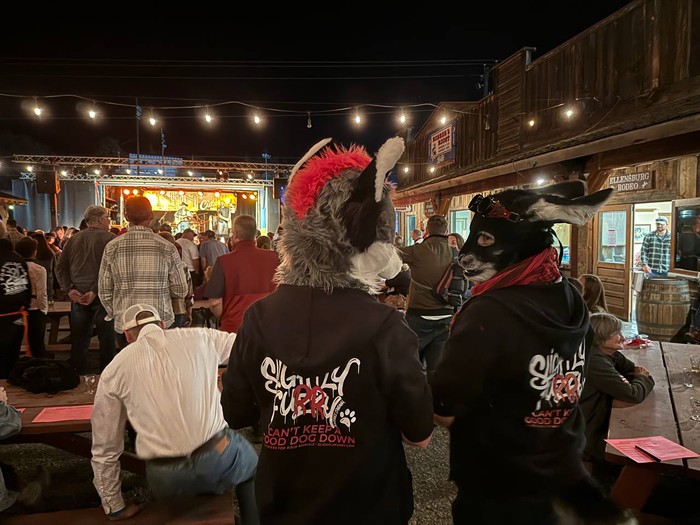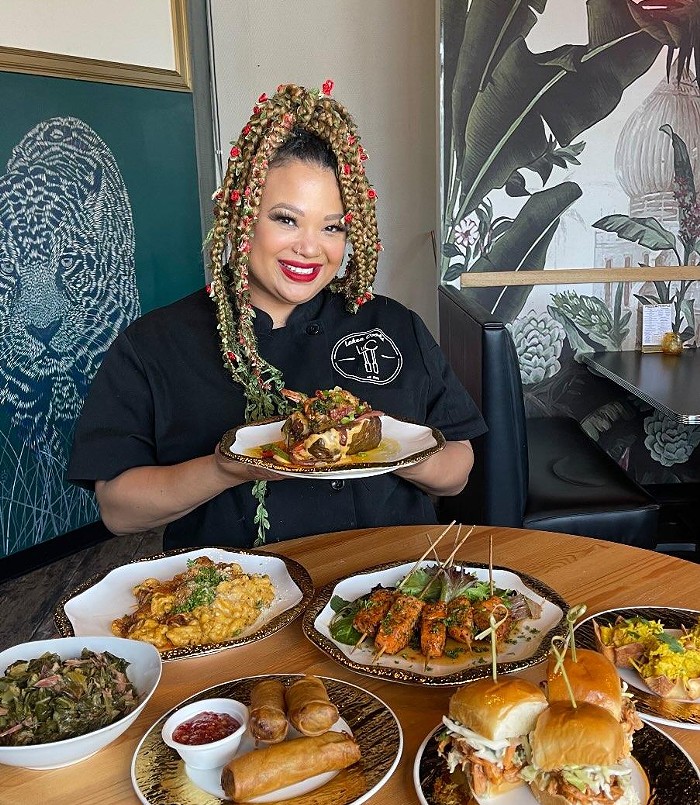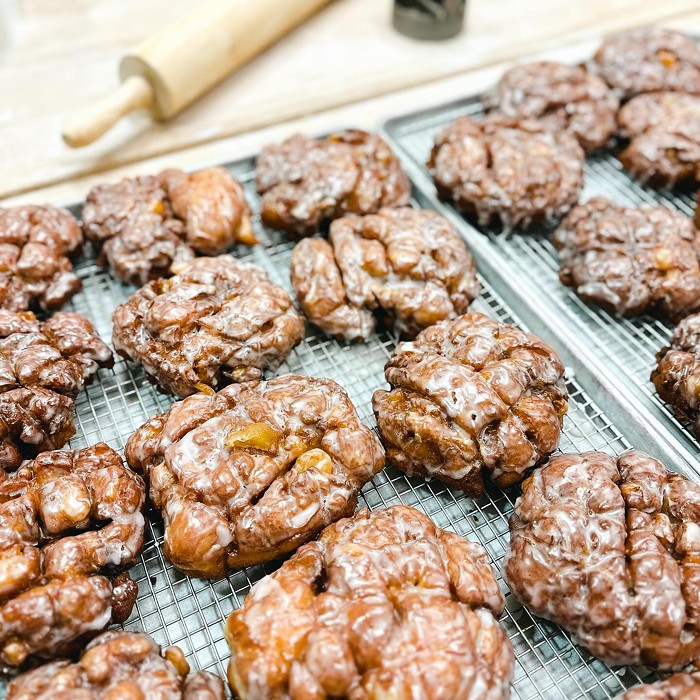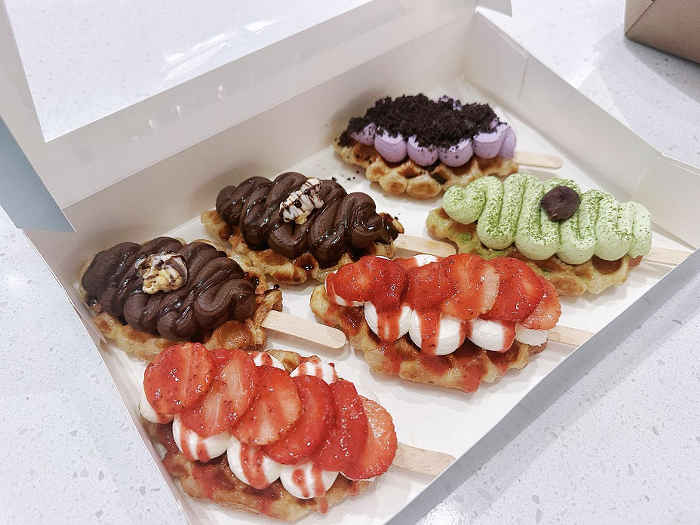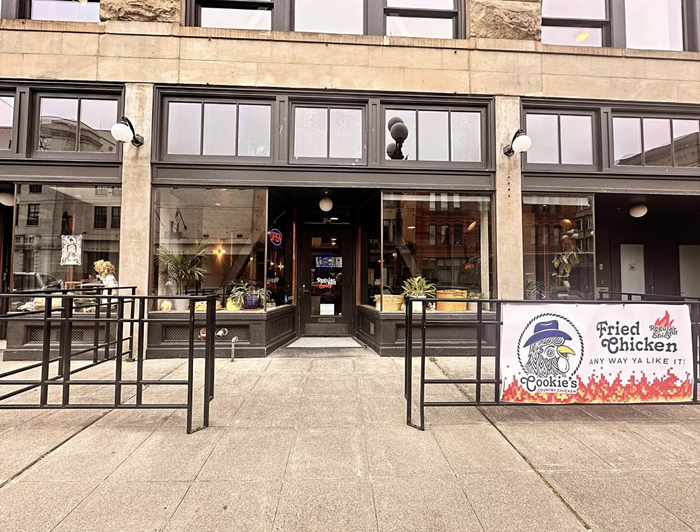
Le Caviste, local sommelier David Butler's homage to the ubiquitous and unfussy wine bars that dot Paris, was a classic on the day it opened. He was worried, he told me recently, that his expansive list of French wine would attract a snobbish crowd, there to show off their discerning taste more than to enjoy themselves.
A little under four years in, it's quite the opposite of that, a place where downtown's multifarious masses come for dates, team-building, dinner with old friends, and really any occasion that's enhanced by a glass of wine and some simple French food. And is there any occasion that isn't? Indeed, once you've been to his "little lemonade stand," as he affectionately describes it, you're pretty much permanently in the mood to go back.
When I do, I'm almost always in the mood for their Planche du Beaujolais ($18). As erstwhile Stranger food critic Bethany Jean Clement once wrote, "their food may be simple, but it's pretty much perfect." These are extremely true words. While I love the poisson en papillote—fish wrapped in parchment paper, which steams it through after its served, yielding an insanely tender filet—as much as she did, I usually go directly for their simplest dish: a bunch off meat and cheese on a plank.
There are always three of these planks, including one with fish, but the Planche du Beajuolais has all the hits: ethereal, fluffy herbed goat cheese; paper-thin Rosette de Lyon; hard salami; housemade pork pâté with red-wine cherries; beurre Breton; and, of course, cornichons. You can enhance the basic experience—a recent rabbit rillette special was maybe the first time I've enjoyed rabbit since bunny-eating season began—but the salami and chevre is everything you need for the perfect snack dinner.
And, to offer a somewhat controversial food opinion, I think snack dinner is the best dinner. The best part of any dinner party is, after all, when you're all milling around with wine talking to one another and eating fancy things off crackers. If we're honest, that's when everyone usually gets full anyway, starved as they are from their day's labors. It's also when all the really juicy gossip gets dished, what with the drinking on an initially empty stomach.
At Caviste, you just do away with the unnecessary entree part, and drink and talk and spill crumbs all over the butcher paper tablecloth until you're ready to walk out into the brisk Seattle night, girded with good humor and great pâté. It is, like charcuterie itself, a wonderfully efficient way to dine. More so when you think about the fact that, for $18, two normal humans can get comfortably full, if not stuffed.
Best of all, you never feel rushed, which is perhaps the most Parisian thing about the place. In America, even in European restaurants, you rarely feel settled. The typical turn time, even at a place where you're really spending, is less than two hours. That's a normal lunch break in most sane countries.
But here, we tend to open restaurants to make money first and to celebrate dining second. All restaurants are businesses, of course, but some restaurateurs don't see success only in dollar signs. Butler gets it, and in creating the type of casual, sociable Parisian bar that antisocial Seattle so desperately needs, he's succeeded mightily.
